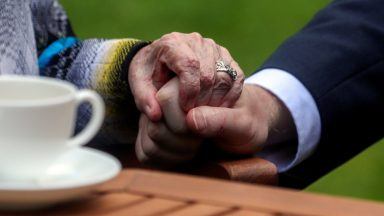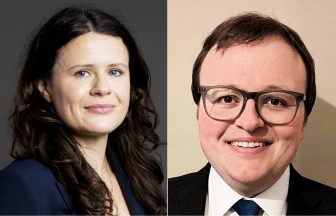A third of surveyed nurses in Scotland have suggested pressure from patients could make them prescribe antibiotics unnecessarily, research has indicated.
Researchers questioned nearly 200 nurses treating patients with upper respiratory tract infections, which can affect the sinuses, throat, airways or lungs, and which typically get better without treatment.
The findings suggest two-thirds of the healthcare professionals thought patients and relatives were likely to exert influence on them to prescribe antibiotics for the condition.
Around a third said this pressure “would make them less likely to manage patients without prescribing an antibiotic”.
The study, carried out by researchers from Glasgow Caledonian University (GCU), examines the problem of antibiotic overuse following a rise in antibiotic-resistant “superbugs”.
It is estimated that by 2050 up to 10 million deaths each year could be caused by antibiotics and other antimicrobial drugs no longer being effective at treating common diseases.
The 184 nurses who responded to questions are known as nurse independent prescribers (NIPs), who work in GP surgeries, in hospital and in the community, and of whom there are around 2400 in Scotland.
Lead author and GCU senior lecturer in nursing and community health Dr Val Ness said: “The most positive finding was that NIPs intend to manage these patients without prescribing an antibiotic and it provides reassurance that they intend to prescribe appropriately.
“However, the most surprising findings, and perhaps the biggest barrier to cutting overuse of antibiotics, were that two-thirds of the nurses felt under pressure from patients and relatives to prescribe antibiotics and a third said that they may change their behaviour because of this pressure and prescribe an antibiotic even if they felt the patient didn’t need it.
“Nurse prescribing is expanding globally and these findings provide reassurance that NIPs intend to prescribe appropriately.
“The best advice I can give to patients is to trust their healthcare professional, or prescriber, and not to go into an appointment with an expectation of getting an antibiotic.
“Usually our immune systems are good at dealing with these infections and often they are viral and viruses don’t respond to antibiotics.
“Of course, there are some people and some conditions which will require treatment with antibiotics, so in no way are we saying nobody should be getting antibiotics – just that we need to save it for the people and conditions that need it most.”
Of those NIPs surveyed, 61% worked in the community, 27% worked in hospitals and 12% worked in both.
The research paper – Factors associated with independent nurse prescribers’ antibiotic prescribing practice: A mixed methods study using the Reasoned Action Approach – is published in the Healthcare Infection Society’s Journal of Hospital Infection.
Follow STV News on WhatsApp
Scan the QR code on your mobile device for all the latest news from around the country


 iStock
iStock

























